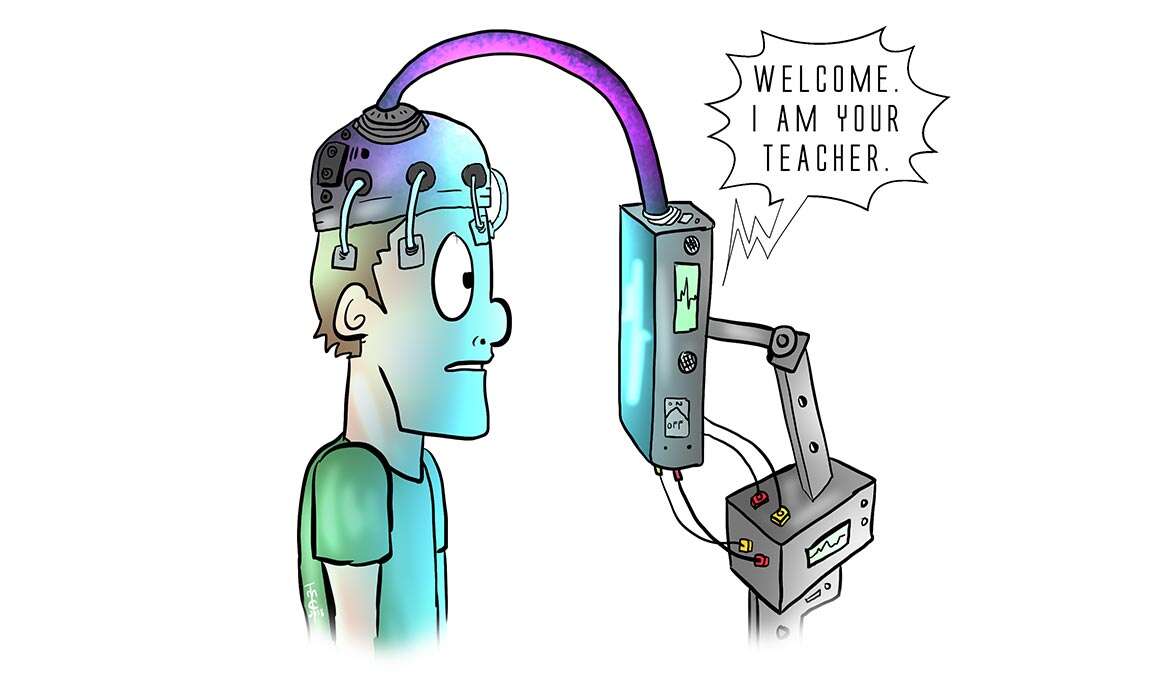By Sarah Phelan
Illustration by Tyler Carpenter
In the midst of the technological revolution, online learning has begun to dominate universities across the globe. In spite of the many apparent advantages of online classes, this platform comes with a plethora of issues. One of these is the overall quality of learning. Online classes often consist of hundreds of students and instructors can find themselves buried in grading tasks, unable to provide effective and timely feedback or one-on-one discussions with students. Class discussions are often less involved and constructive than those in face-to-face classrooms. Furthermore, a simple copy and paste of a quiz question can lead students to numerous websites like Quizlet or Gradesaver where previous students have posted answers to their coursework. These issues negate the innovative advantages that online learning offers.
Lack of instructor feedback, for instance, is a direct disadvantage when compared to conventional class structure. Face-to-face classrooms provide a collaborative environment in real time where constructive discussion is possible. A 2013 study from Computers & Engineering contemplated this issue. They reported that online students “Felt less intimate socialization and collaboration.” Not only are students able to connect more easily face-to-face, the study also reported that students were more polite and experienced more group cohesion. This led to effective networking and relationships even outside of the classroom.
The superficial nature of online classes also leads to contrived and dead-end discussion posts. Students from the same study stated that “In online discussion, it is very cold because the facial expressions are not there.” When instructors ask you to post on the discussion and respond to two others, the responses are almost always strained and artificial, beginning with empty phrases such as, “I agree with you,” or “I like what you said.” Students just want to fulfill their quota of responses without thinking critically about their opinion.
Perhaps the greatest disadvantage of all is the ease of cheating in online classes. Instructors have no way to tell whether or not students have read the material and can effectively participate in discussion when they are just reading text submissions. A 2013 article from Education Digest explained that the never-ending effort to curb cheating is being met with new methods. Author Jeffrey Young states that “Tech-savvy students are finding ways to cheat that let them ace online courses with minimal effort.” The nature of technology is that it will always improve upon itself and this makes it simple for students to share answers and access previous tests.
Although the disadvantages of online classes are severe, they do have many benefits. Students can work at their own pace from wherever may be convenient. International students or introverts may appreciate the online model as they are not required to speak in front of others. Though this may be the case, the quality of learning and the ease of cheating in online classes must be addressed. These issues not only jeopardize the education of students but the reputation of the university.










